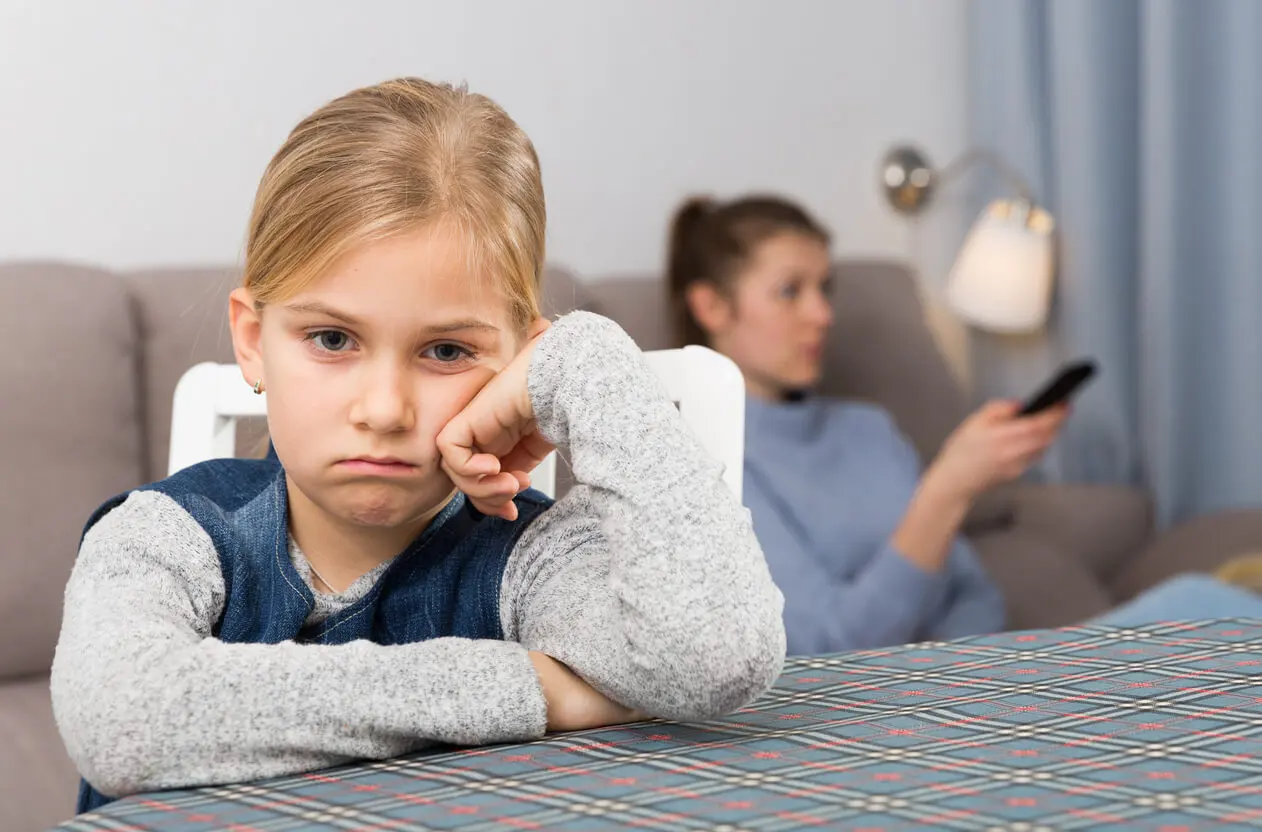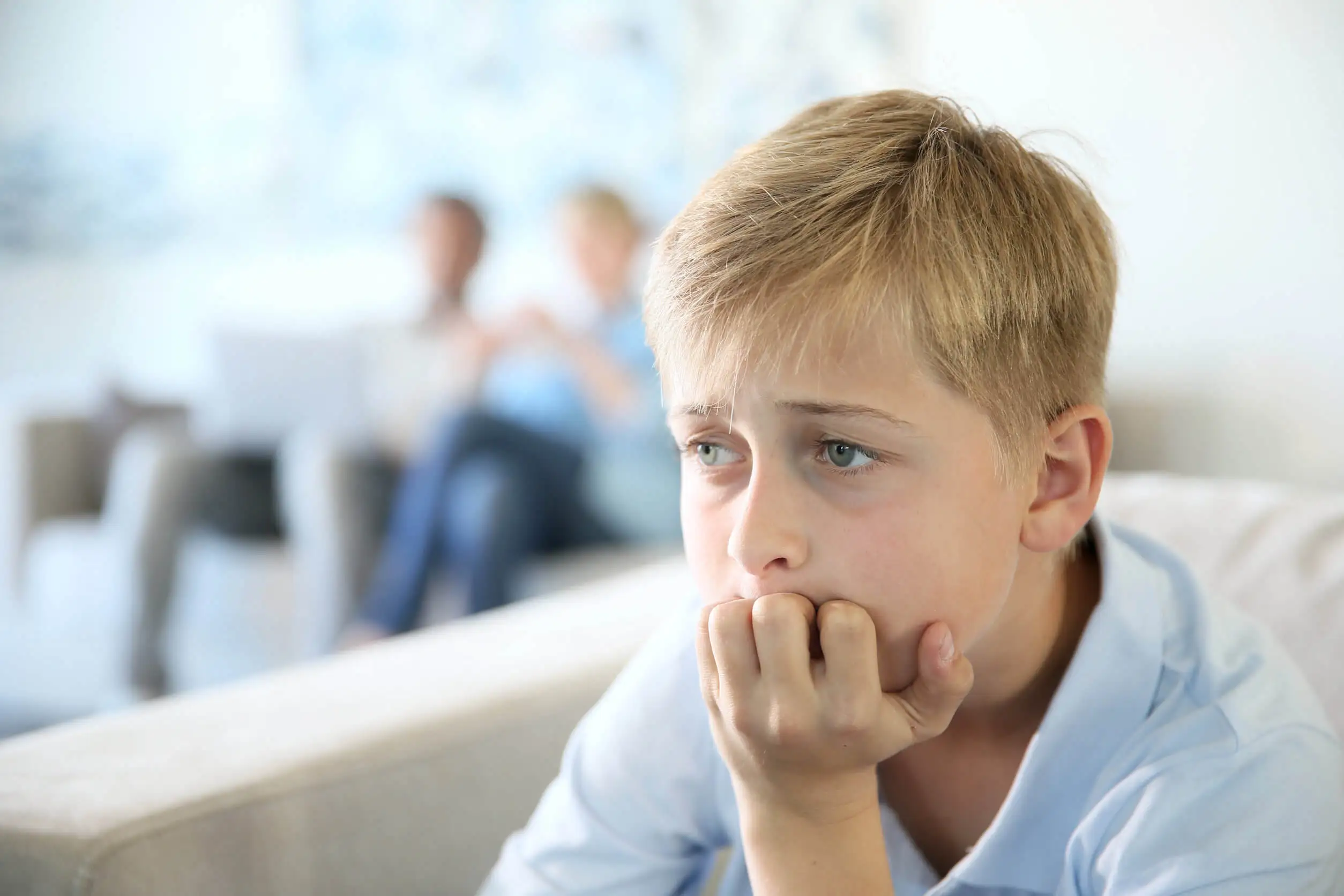The Effects of Parental Rejection on Children

Parents are the most significant figures in our development. As primary caregivers, they’re tasked not only with protecting, feeding, and grooming us, but also with offering affection, acceptance, and validation. If for any reason they’re unable to fulfill these functions, the psychological and emotional repercussions can affect us for life. This is why it’s interesting to learn about the effects of parental rejection on children.
To understand the magnitude of the impact of their actions, it’s worth remembering that we’re totally dependent and vulnerable during childhood. We need our parents to survive.
However, they’re also the ones who teach us how much (or how little) we’re worth and what we can expect from life. If what we receive from them is rejection, this puts us in a very complicated position.
How does parental rejection manifest itself?
Rejection of children by their parents is more common than you may think. It’s not always shown clearly and directly; sometimes, it’s more subtle and veiled but equally painful for those who receive it.
In general, we can speak of rejection when the following situations occur:
- The parent abuses the child, either physically or verbally. There may be pushing and shoving and hitting, but also insults, humiliation, comparisons, and constant criticism. The parent may respond with sarcasm and mockery or be excessively harsh with his or her words and actions.
- Neglect is another form of rejection. In this case, parents don’t assume or exercise their parental role and are not physically or emotionally present in the child’s life. They neglect or treat the child with indifference.
It’s possible that both situations are combined, and the same parent is sometimes aggressive and sometimes indifferent. Whatever the case, the child grows up feeling that his or her parents don’t like him or her, that he or she is not chosen by them, that he or she is not enough or that he or she should be different to deserve their love.

Why do parents reject their children?
There are several reasons that may account for this rejection. However, it’s essential to emphasize that in no case is it the child’s fault.
Among the main causes are the following:
- Unwanted parenthood: When an unplanned pregnancy occurs, the parents may feel that this child ties them to a marriage they don’t want, limits their lifestyle, or places a burden of responsibility that they don’t want to assume.
- The child symbolically represents the other parent: When there are major disagreements between the couple and the child resembles one of them, the other parent may feel a strong unconscious rejection. It also happens that the resemblance to another member of the family unleashes these attitudes.
- A poor fit: This occurs when the temperament of the child and that of the parent are excessively different. Thus, if the adult fails to accept and accommodate the child’s needs, a lack of understanding occurs, which generates rejection.
- The parents suffer from some psychological disorder: This prevents or hinders them from bonding with the child. This is common in the case of postpartum depression, but anxiety disorders, mood disorders, psychosis, and others may also play a role.
- Parents who were victims of inadequate parenting: They didn’t receive affection, understanding, and acceptance from their own parents and are now repeating the pattern.
How does parental rejection affect children?
The psychological impact of parental rejection is manifested in the image that the child develops of himself or herself and in his/her ability to relate to others. Thus, the following are the most common consequences.
Insecurity and low self-esteem
People who grow up feeling rejected by a parent develop a poor self-image and a negative self-concept. They live with great doubts about themselves and their worth as human beings.
If the people who should have loved them most in the world weren’t able to do so, why should others? Thus, they can become very insecure beings.
We think you may be interested in reading this, too: Authoritarian Parenting Style: Characteristics and Possible Effects on Children
Interpersonal avoidance pattern
This consequence is frequent when they’ve received total indifference from their parents. When expressing their emotions and discomfort, children need the adults in their care to see and validate them.
If parents minimize, belittle, or ridicule what the child feels or needs, the child withdraws into him/herself and learns to be independent. Thus, he or she will avoid showing himself or herself as vulnerable to others, hide his or her emotions, and tend to run away.
The child may suffer from fear of commitment and difficulties in establishing deep and lasting relationships.
Like this article? You may also like to read: Attachment Parenting: What Is It and What Are The Benefits?
Emotional dependence and a need for approval
The opposite happens when the rejection comes from an ambivalent position. In this case, the parent was affectionate at times and hostile at others; sometimes they attended to and praised the child, and at other times, they criticized or abandoned him or her.
Thus, the child grows up in constant anxiety about secure affection and care that he or she doesn’t know when it will be available. As they grow up, they tend to become anxious, dependent, and complacent.
They often need and seek external approval and are willing to do anything not to lose the company and affection of those around them. Not feeling deserving and worthy of affection for who they are, they go out of their way to fulfill the desires and expectations of others.

Psychological disorders
Finally, it has been shown that suffering from parental rejection significantly increases the risk of suffering from different psychological disorders. Therefore, there’s a greater propensity to develop depression, eating disorders, and anxiety problems, especially social phobia.
Overcoming parental rejection can free you
The consequences of rejection can be with us for life if we do nothing about it. Therefore, as adults, it’s essential that we have the courage to look at our wounds, accept them, and work on them.
It’s not easy to recognize that a parent rejected us or to assume that we feel anger, hatred, or resentment because of this. However, we have to allow ourselves to express it in order to free ourselves.
In the same way, we’re faced with the task of rebuilding our self-esteem and our self-image and learning to healthily bond again. To carry out this process, professional accompaniment is key, but the results can be liberating and satisfactory.
If you have identified with the above, don’t hesitate to seek help.
All cited sources were thoroughly reviewed by our team to ensure their quality, reliability, currency, and validity. The bibliography of this article was considered reliable and of academic or scientific accuracy.
- Borda, M., Asuero, R., Avargues, M. L., Sánchez, M., del Río, C., & Beato, L. (2019). Perceived parental rearing styles in eating disorders. Revista Argentina de Clínica Psicológica, 28(1), 12-21.
- Khaleque, A., & Rohner, R. P. (2012). Transnational relations between perceived parental acceptance and personality dispositions of children and adults: A meta-analytic review. Personality and Social Psychology Review, 16(2), 103-115.
This text is provided for informational purposes only and does not replace consultation with a professional. If in doubt, consult your specialist.









